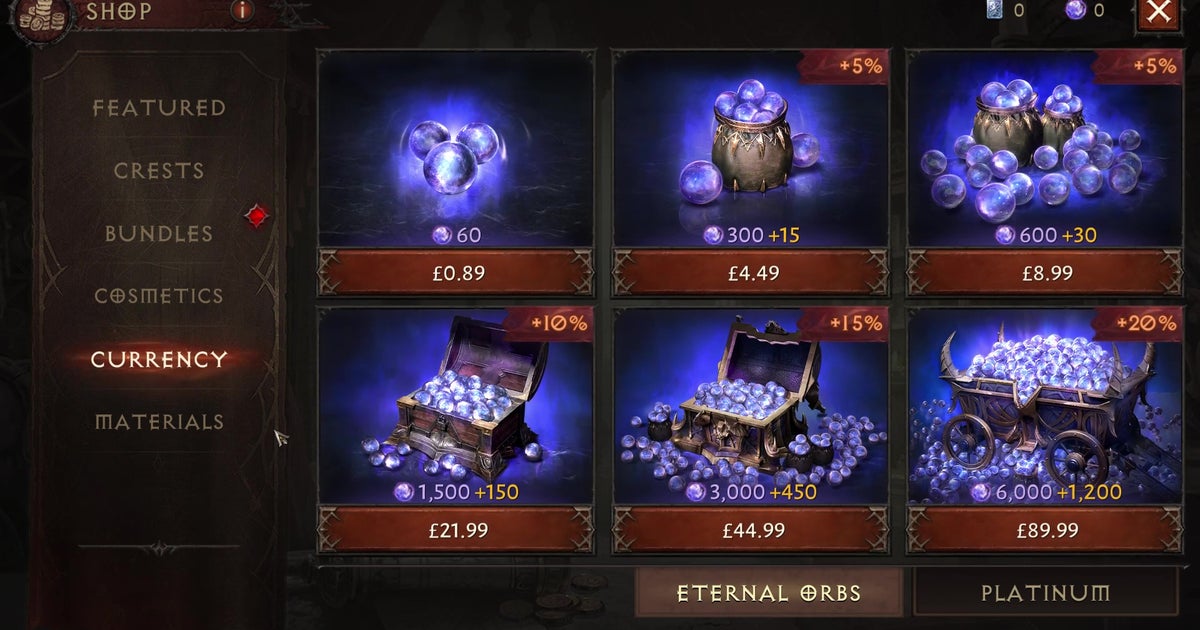A European consumer advocacy group have published an open letter to the European Union Commission expressing their concerns about video games that make use of premium in-game currencies – aka, make-believe money you can buy with real money, such as Minecoins in Minecraft’s Bedrock Edition.
The group in question are the Bureau Européen des Unions de Consommateurs, or BEUC, who represent 44 non-governmental consumer organisations from 31 countries, and have been around since 1962. They’re accusing the publishers of Fortnite, EA Sports FC 24, Minecraft, Clash of Clans and others of misleading people – specifically children – with their in-game premium currencies, and breaching European Union consumer protection laws. On a press site that summarises the results of various longer studies, they offer the below broad complaints about the practice.
Consumers cannot see the real cost of digital items, leading to overspending: the lack of price transparency of premium in-game currencies and the need to buy extra currency in bundles pushes consumers to spend more.
Companies’ claims that gamers prefer in-game premium currencies are wrong.
Consumers are often denied their rights when using premium in-game currencies, tied to unfair terms favouring game developers.
Children are even more vulnerable to these manipulative tactics. Data shows that children in Europe are spending on average €39 per month on in-game purchases. While they are among the ones playing the most, they have limited financial literacy and are easily swayed by virtual currencies.
Drawing on European Parliament surveys, Statistia and Steam data, the BEUC note that “more than half of EU consumers regularly play video games”, including 84% of those aged 11-14, and that “in-game purchases generated more than US$50 billion globally (approx. €46 billion), representing about one-quarter of revenues in the video game market”. They add that of the 50 most-played games on Steam in 2023, 21 featured in-game premium currencies, and of those 21, eight had an age rating of 12 years or lower.
In the full 35-page write-up of their investigation and complaint, the BEUC make a series of recommendations. I’ve packed them down and reworded them a little for easier digestion:
– The EU should consider banning the use of premium currencies in games and apps, pending the results of the Digital Fairness Fitness Check, an on-going investigation of current EU consumer laws. Or at least, the EU should prohibit their sale to people under 18
– The EU should amend consumer law to introduce stricter transparency requirements. In particular, what an in-game currency is worth in real money “should be shown clearly to consumers before each transaction made with the premium in-game or in-app currencies, for example using the same font type and size”
– If in-game and in-app premium currencies aren’t banned, the EU Commission should conduct a study to determine which means of displaying them is most “efficient” for consumers and especially kids
– EU Consumer Law should be amended to oblige publishers to deactivate in-game payment mechanisms by default, rendering them “opt-in”
– People should receive notifications about and be asked to validate every in-game transaction, and should be required to set a password to stop unwanted transactions
– Games should have their strictest privacy settings active “by default” so that people can play games “without having their economic behaviour be influenced algorithmically”
– The European Commission should clarify by law that consumers have the same rights with regard to in-game transactions using in-game premium currencies as for purchases with real money
– Specifically, the Commission should amend the Annex of the Unfair Contract Terms (UCTD) Directive to state that discarding refund claims for in-game and in-app premium currencies is “presumably unfair”
– People should be able to decide exactly how much premium in-game currency they want to buy, rather than buying fixed wodges of it decided by the publisher
– EU consumer law should “mandate the separation” of premium in-game currencies and currencies earned in-game, so that “consumers fully understand how much they are spending in-game”
– Existing consumer laws should be more consistently enforced with regard to in-game purchases, and enforcement groups for different sectors such as data protection or financial services should collaborate more
– Investigating authorities should use the “vulnerable consumer” benchmark of increased professional diligence established in the Unfair Commercial Practices Directive (UCPD), because many of those exposed to in-game purchases are kids under the age of 16
My brief take: while I distrust the Helen Lovejoy-esque air of moral panic that informs some of the BEUC’s wording, I agree that in-game premium currency systems are essentially misleading, and should be properly regulated. Many of the above arguments have been presented by other groups and authorities in the past, and individual examples of publishers doing cheeky things with premium currencies aren’t hard to find.
Going by previous experience of consumer group advocacy, I doubt many of the BEUC’s recommendations will be implemented, but they’re an opportunity for discussion, and the more we talk about these things the less we’ll be deceived by them.




















